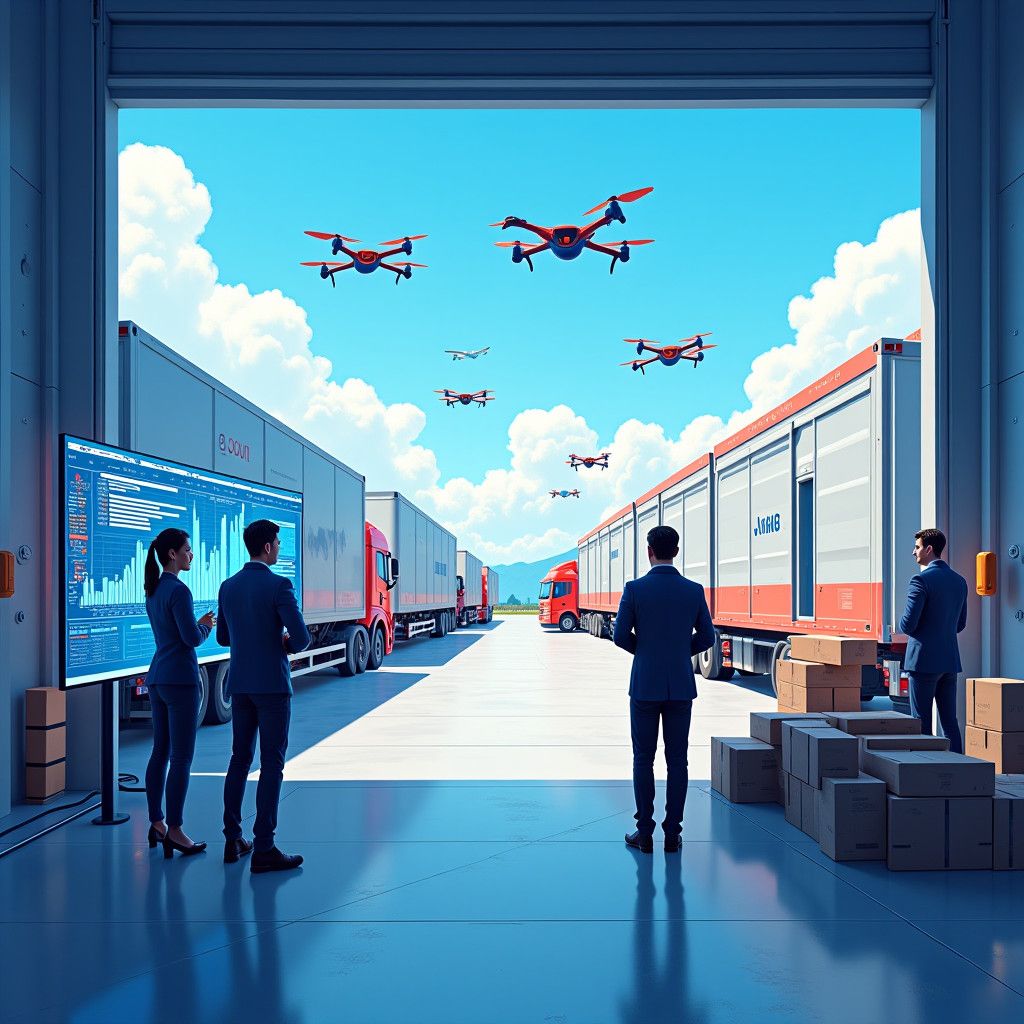Boon, an emerging player in the logistics sector, has recently secured $20.5 million in funding aimed at further developing its artificial intelligence tools for optimizing supply chain operations. This funding round signifies not only a vote of confidence from investors but also highlights the increasing demand for innovative technology solutions in logistics.
The logistics industry is undergoing a transformation, influenced by rising consumer expectations, heightened competition, and the need for greater operational efficiency. Companies are now striving to integrate advanced technologies like artificial intelligence to navigate these challenges effectively. Boon’s focus on AI-driven solutions positions it well to capitalize on these trends.
Understanding Boon’s AI Solutions
Boon’s AI tools are designed to streamline logistics operations by automating routine tasks, enhancing decision-making processes, and providing real-time insights. The platform uses machine learning algorithms to analyze vast amounts of data, allowing companies to predict demand, optimize routes, and manage inventory levels efficiently. By minimizing manual intervention, businesses can reduce errors and save valuable time.
For instance, a logistics provider using Boon’s tools might leverage predictive analytics to forecast shipping demands based on historical data and current market conditions. This capability enables the company to allocate resources more effectively, reduce transportation costs, and improve delivery timelines. Such efficiency is crucial in an industry where timing and accuracy are paramount.
The Importance of Investment in Logistics Technology
The $20.5 million raised by Boon will primarily be allocated towards research and development. By focusing on enhancing existing AI capabilities and developing new features, Boon aims to provide comprehensive solutions that cater to diverse logistics needs. This investment trend reflects a broader industry movement where technology integration becomes essential for survival and growth.
Venture capital investment in supply chain and logistics technology has surged in recent years. In 2021 alone, logistics tech companies raised over $40 billion globally. Investors recognize that digital transformation in this sector not only improves operational efficiencies but can also lead to substantial cost savings.
Market Dynamics and Competitive Landscape
As companies like Boon continue to innovate, they face competition from both established players and new entrants. Major logistics firms are increasingly investing in technology to modernize their operations. Furthermore, companies such as Amazon and FedEx are continuously upgrading their logistics infrastructure, driven by their massive scale and customer-centric models.
Boon’s ability to differentiate itself will be crucial. The startup emphasizes user-friendly interfaces and customizable solutions that cater to specific industry needs. This focus can provide a competitive advantage, appealing to smaller businesses that require nimble and adaptable technology solutions.
Success Stories Highlighting the Impact of AI in Logistics
Real-world applications of AI in logistics demonstrate the potential benefits companies can achieve. For example, companies implementing AI-driven route optimization have reported a reduction in fuel consumption by up to 30%, significantly lowering operational costs while reducing their carbon footprints. In another instance, AI-powered inventory management systems have helped businesses decrease stockouts by around 45%, leading to improved sales and customer satisfaction.
Such case studies highlight not only the power of AI but also the tangible benefits it delivers to logistics operations. As Boon enhances its offerings, it will likely draw on these successful examples to reinforce its value proposition to potential clients.
Conclusion
Boon’s recent $20.5 million funding round represents a significant milestone for the startup as it works to provide cutting-edge AI solutions to the logistics industry. The increasing reliance on technology in this sector underscores the need for innovative solutions that enhance efficiency, reduce costs, and improve service levels.
As Boon continues to refine its AI tools, the company is poised to play an influential role in shaping the future of logistics. The integration of machine learning and predictive analytics within supply chains signifies a pivotal shift that promises to address the challenges faced by logistics providers today.











